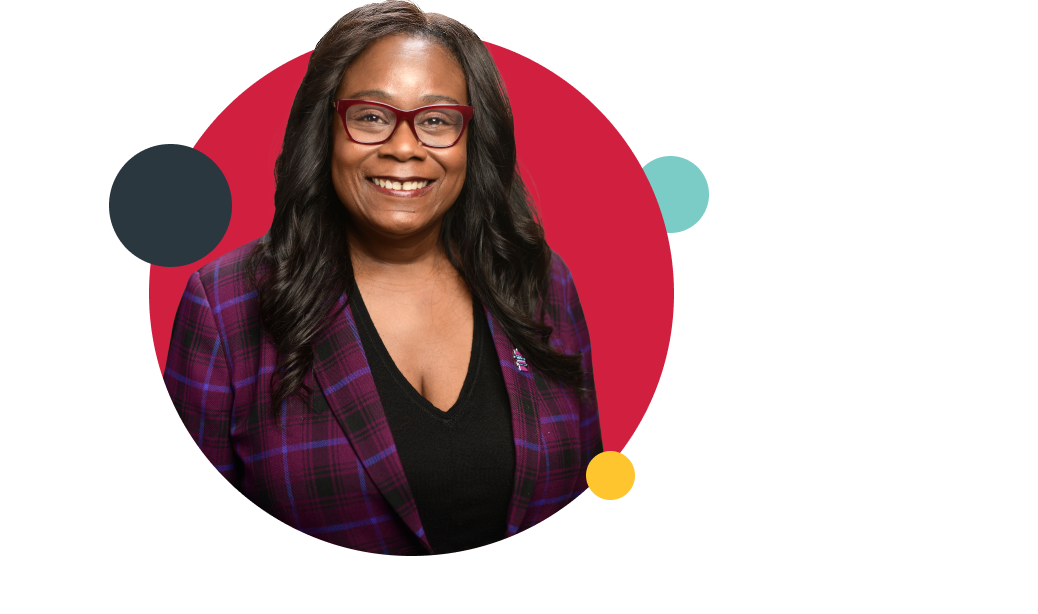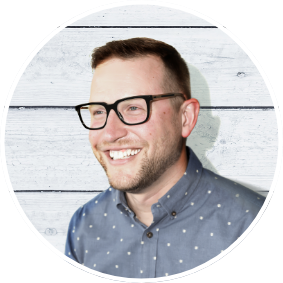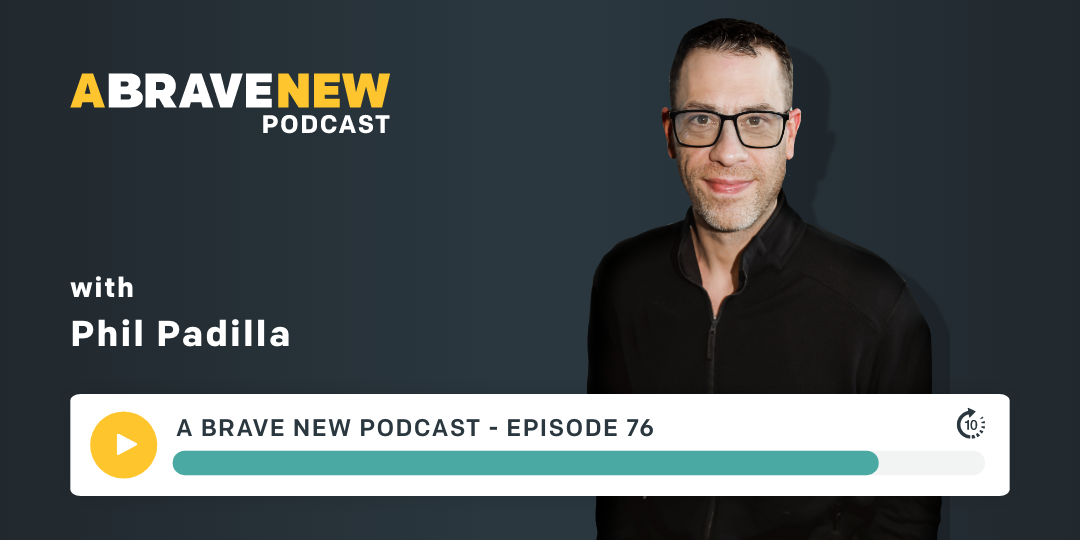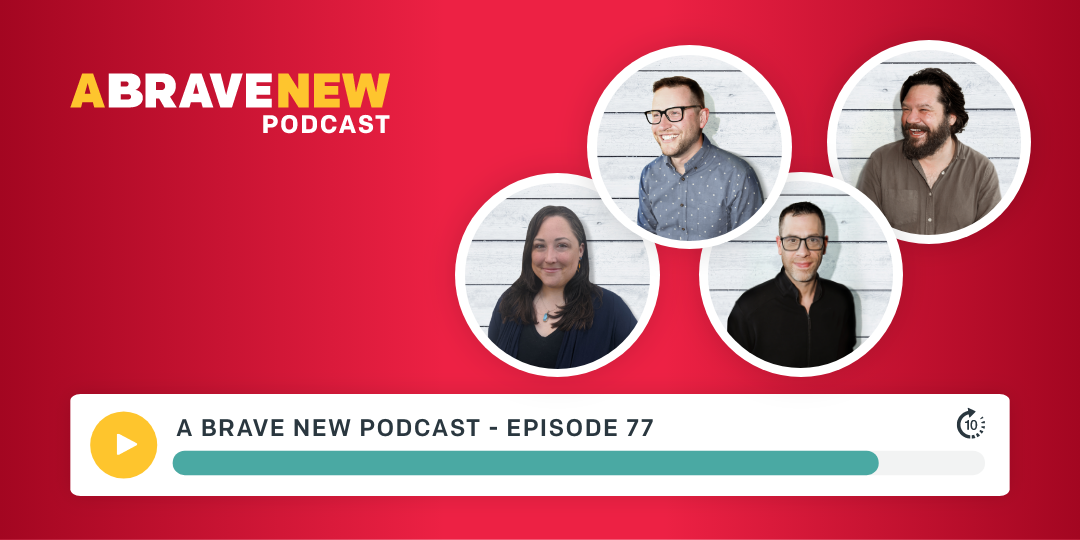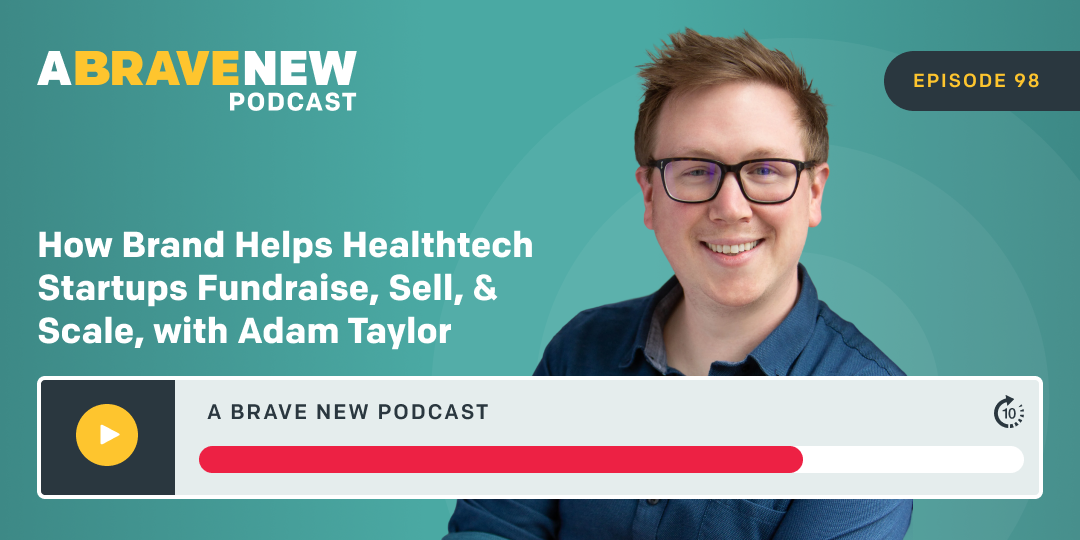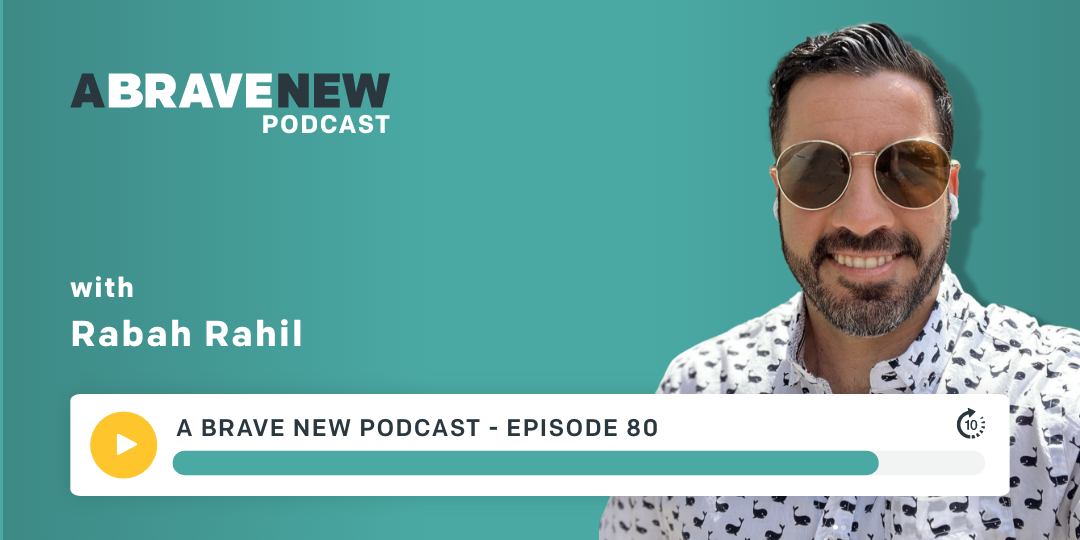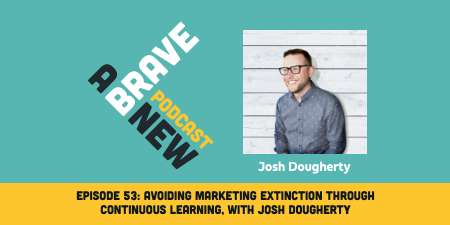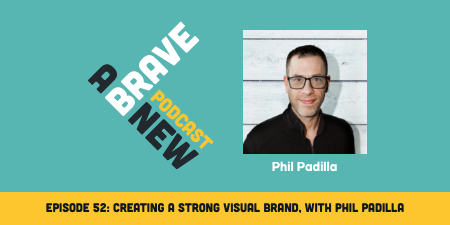Hillery Smith Shay, MBA is chief marketing and experience officer, senior vice president of communications at Children’s Minnesota.
Hillery Shay joined Children’s Minnesota in 2021, as VP of marketing and communications and is now chief marketing and experience officer, senior vice president of communications. She provides strategic direction for organizational marketing and communications. She is also responsible for defining and building an organization-wide experience strategy.
Ms. Shay brings nearly 25 years of leadership experience in health care and mass communication, with a proven track record of success leading national and global public health campaigns and marketing initiatives. Prior to her role at Children’s Minnesota, Shay served in leadership roles at Abbott Labs leading professional education, marketing, communications and scientific congress strategy. She also served as a journalist and team leader for more than 10 years at the Associated Press and the Baltimore Sun, including as a photojournalist covering two sitting U.S. presidents as well as the Pentagon on 9/11.
Ms. Shay earned a Bachelor of Arts degree from Haverford College in Pennsylvania and a master’s degree in business administration from Bethel University in Minnesota. She is an active member of Zeta Phi Beta Sorority, inc.
What you’ll learn about in this episode:
- How Children's Minnesota faced and overcame a significant branding challenge after shortening their name, leading to market confusion with other similarly named experts in their market.
- How adding "The Kid Experts" to the Children's Minnesota brand was implemented to create clear differentiation and clarify their identity in the market.
- The steps that Children’s Minnesota took to safeguard their brand identity.
- How the repositioning strategy resulted in measurable improvements in brand perception, evidenced by a significant increase in their NRC Health image and reputation score over a three-year period.
- The crucial role of consistent implementation of the "The Kid Experts" branding across all touchpoints, including physical hospital and clinic spaces, for reinforcing the new brand identity.
- How the "Raise Them Up" campaign emerged from community trauma and served as a powerful example of a brand connecting with its audience through hope and advocacy for children.
- How Children's Minnesota demonstrated a commitment to inclusive branding by intentionally reaching diverse communities in their service area through translated materials and tailored outreach efforts.
- About the tangible results of the "Raise Them Up" campaign in engaging diverse communities, including increased clinic visits requiring translation and higher conversion rates for targeted advertising.
- About the importance of a long-term perspective in brand building, showcasing the multi-year effort to reposition and strengthen the Children's Minnesota brand.
Additional resources:
- Hillery Smith Shay on LinkedIn
- Children’s Minnesota’s Website
- Josh Dougherty on LinkedIn
- Josh Dougherty’s speaking site
- A Brave New’s Website
Transcript
Josh Dougherty:
Welcome to A Brave New Podcast. This is a show about branding and marketing. But more than that, it's an exploration of what it takes to create brands that will be remembered and how marketing can be a catalyst for those brands' success. I'm Josh Dougherty, your host. Let's dive in.
Welcome back to A Brave New Podcast. Today I'm joined by Hillery Shay. She is the chief marketing and experience officer at Children's Minnesota. I had the opportunity to hear her speak first at HMPS25 in Orlando, and I was really struck by the work that she had done to build the Children's Minnesota brand, to help to differentiate that brand in the Minneapolis-St. Paul market, and also the cool things that she's done as a brand to really, I think, connect in meaningful ways with the unique communities that exist in Minneapolis-St. Paul.
So I invited her on the show to really tell that story and share a little bit of her vast knowledge, as she has over 25 years of experience in healthcare, communication, brand. And then also telling that unique story of how she's built Children's Minnesota since she joined in 2021. So without further ado, let's start the conversation.
Well, hi, Hillery. Thanks so much for coming on the show today. Appreciate you joining me.
Hillery Smith Shay:
Oh, thanks for having me. Happy to be here.
Josh Dougherty:
Awesome. Well, as we jump in, we're going to talk a lot about Children's Minnesota today and the story and the work that you've been doing there. But I'd love for you to share a little bit about your story and kind of your career path and what brought you to the work that you're doing now.
Hillery Smith Shay:
Thank you so much. Yeah, I'll just give you brief because I don't necessarily want to go on and on about how long my career is. Let's just say I spent a number of years in a different career profession coming out of college, I worked in the media. I was a photographer for news. And then I became a photo editor and director of photography and really leading creatives. And then went back to school and got my MBA and switched over into healthcare marketing.
But I did get to do some fun things in that career. As a news photographer. I got to cover 9/11, it was really tragic. But I also got to cover some political conventions and worked on Capitol Hill a bit, ridden on Air Force One.
Josh Dougherty:
Nice.
Hillery Smith Shay:
So I have got some fun things from that career. But I've also got fun things from this career, and I've always just loved work with purpose. And one thing I think is true is that, A, I've always been a storyteller, and B, I've always believed in the altruism in my work. So I believed I was defending democracy as a media human. And I believe in the work that I do today for Children's Minnesota because they are amazing little people.
Josh Dougherty:
Yeah. And I think it's amazing to be able to get up and do something that's actually making a meaningful impact in the world each day with your work.
Hillery Smith Shay:
Definitely, definitely. But so now I am the senior vice president of communications and the chief marketing and experience officer at Children's Minnesota. I've been here for four years total. But before that, I actually came in as the VP of marketing and communications. So I was recently promoted to the executive leadership team.
Josh Dougherty:
Nice. Congratulations.
Hillery Smith Shay:
Thank you.
Josh Dougherty:
I'd love to have you give a brief overview of Children's Minnesota and who they are. I think many people are familiar with children's hospitals, obviously, but each one has their different flavor and their different emphasis.
Hillery Smith Shay:
They do. They do. So we serve, we are kind of the children's hospital for the upper Midwest. So when you look at the Midwest, you've kind of got, you start out in Ohio, but then you go over and you progressively gradually get up. So we tend to service children in western Wisconsin, Minnesota, of course, North Dakota, South Dakota, and Iowa. And we see about 150,000 children a year. And we have a level one trauma center as well as two, or actually, sorry, three level four NICUs. So we really are The Kid Experts, as we like to say.
Josh Dougherty:
Well, it's a good transition into where we want to go today. We're going to talk about the work that you've done over the previous years with repositioning, figuring out how to differentiate Children's Minnesota. So I wonder if you could start out by talking about every good brand story has a reason why the brand work starts. Hopefully, ideally, right? Sometimes it doesn't.
Hillery Smith Shay:
There is usually a problem that we are trying to solve for. And Children's Minnesota has an interesting story because I don't exactly know, it happened shortly before I got here—about three or four years—but they decided to change their name. And they were Children's Hospitals and Clinics of Minnesota, so they decided to just go Children's Minnesota, and that's a hard transition. Most people still have to identify where they are. When people think of Children's, it's like the first one that pops into their head is Boston Children's because they really did a good job of nailing that marketing.
So it's really hard. A lot of other children's hospitals have tried to go there, but they realize that it's not as intuitive. And we have a number of children's hospitals in our market, so it was hard for people to really distinguish between all of them. We have Gillette Children's and Masonic Children's and Mayo Pediatric Center and Children's Minnesota and two locations, from a hospital standpoint.
We also had other things with the name children's in it, so Children's Museum. So the Minnesota Children's Museum, people confused us a little bit with that. Children's Theater Company, which I actually happen to be on the board of. So I feel like there were just a lot of people trying to own the word children's and/or the meaning around the word children's, so it was a difficult problem that was only exacerbated once they shortened their name and removed the hospitals and clinics to just Children's Minnesota. They were like, "But what is that?"
Josh Dougherty:
Yeah, because you're honestly expanding the competition that you have to deal with then in the market beyond just the hospitals. Yeah.
Hillery Smith Shay:
Exactly. Exactly.
Josh Dougherty:
Yeah. Yeah, so what was the strategy you chose to create a unique space around that and to begin to build differentiation?
Hillery Smith Shay:
Well, we all understand that you have to be able to do things within a budget, but you also don't want to confuse people too much. So another name change was not effective. The original name was really long, I know that that's why they changed it, but they didn't do a brand audit to know that it was going to cause even more confusion.
But clarifying things and clarifying purpose and sort of adding a surname, if you will. When you think of this, it's not Meghan, it's Meghan of Sussex. It's like, oh, okay, she's part of the royal family. Got it. That's that indicator. And that's the type of thing that I really needed to do for Children's Minnesota is to think about what could I add to Children's Minnesota that would clarify who we are and speak to exactly what people think about when they know which Children's you're talking about?
So doing a brand audit let me know that they really do lean into us for expertise. They're like, "Oh, we go to that Children's because they've got over 60 specialties. They're not just a research hospital that only does cancer.” Or, “they're not super specialized like Gillette," who bone, brain, and movement is their specialty and they do wonderful work, but they're not the everyday pediatric focused independent system that we are.
But as you talk to different audiences, they said, "Oh, we go to Children's Minnesota for their expertise, and that's just they really... We may do this surgery once or twice a year. We know that they do them pretty much weekly, and this is that place where you go for that expertise." And when talking to doctors, they said, "Oh, we refer over there, or we get a second opinion there because they see so many more cases of pediatrics, whatever it is, than we do. They really are the experts." So colleagues, other physicians were leaning into us as the experts.
I like to laugh because we just celebrated our 100-year anniversary. And our 100-year anniversary, we were able to find a letter where the Mayo brothers explained how extraordinarily different pediatric care needed to be, and so they endorsed Dr. Ramsey's request to open a children's hospital in St. Paul. So when I jokingly say, "Hey, even the Mayo Clinic needs The Kid Experts," I actually have a letter to prove it. And it's like they literally, they endorsed Dr. Ramsey saying, "Yes, pediatric children's hospital is exactly what is needed."
And we do have wonderful collaborations with them. So if you were down at the Mayo and you needed to see a pediatric cardiologist, you're actually seeing a kid expert. We visit them three times a week to see their patients as well.
Josh Dougherty:
That's amazing. And I think that's such a cool story, but it's also, I think a great illustration of the collaboration that happens when you can really realize what your space is, right?
Hillery Smith Shay:
Exactly.
Josh Dougherty:
And be able to focus in on it. Yeah.
Hillery Smith Shay:
So I've thought about it, I looked at all the data that I had gathered. And then I went to do some research because working in marketing, it's like if you can't own it, it won't work. And we were able to trademark and receive a registered copyright for The Kid Experts.
Josh Dougherty:
Nice.
Hillery Smith Shay:
So that was an addition, that was a surname, if you will, to basically tell people which Children's we were in the Twin Cities. We are The Kid Experts.
Josh Dougherty:
Talk to me a little bit about how consistently that's used throughout. Is it used now on everything essentially that's going up?
Hillery Smith Shay:
Everything. It is part of our major lockup, so it goes with the logo. So I basically told people, I said, "The only brand change we've made is we've added a surname because your brand is really your identity." And I've just started really talking about that with the whole organization and just introducing them to, whenever we do an ad campaign, that's not a rebrand, that's not a changing of who we are. We're just talking about either a new service or something that we want to remind the public about or trying to stay top of mind for the things that we need because new parents happen every day. So there's a continual need for The Kid Experts.
So we wanted to make sure that people understood that your brand is your name and your identity and who you are in a space. And then your campaigns are thinking about the situational issues that are going on, the situational concerns for your immediate area. And as I was coming into Children's Minnesota, we were coming out of the pandemic. And unfortunately, we were located only 12 blocks from where George Floyd was killed. So we had a lot of things that Minnesota was being known for. And as a community asset, Children's Minnesota needed to really be able to step up and provide what the community needed at that time to kind of help stabilize the situation.
Josh Dougherty:
Yeah, totally. I want to talk about that more—because I know you have a specific campaign that's kind of born out of that—as we go. But I'd love, before we do that, to talk a little bit about—it's been a number of years since you started using this logo lockup, since you started adding …
Hillery Smith Shay:
Three years.
Josh Dougherty:
... the surname, as you say. I'd love to hear a little bit about what are the measurable outcomes you're seeing from the repositioning? How have people responded? What data have you seen to show that it's being effective in its work?
Hillery Smith Shay:
Well, first of all, it's just noticing. They always say that when people start to mimic you, they really recognize that you have stumbled upon something that they want as well. So when I started seeing new campaigns from the Masonic Children's Hospital talking about how they were cancer experts, and lots of people trying to figure out how not to infringe upon our trademark, but to try to boost their own expertise, I said, "Ah, I've struck a nerve, which means I've managed to do something different that they notice and they feel like they need to compete against it." So there's always that instinct because until you have data, you don't have data.
But we have managed to increase our profile and just the question of which pediatric hospital would you prefer or recommend people for? So we actually do NRC surveys and we were able to get to a 59.8% NRC Health image and reputation score.
Josh Dougherty:
Wow.
Hillery Smith Shay:
And that's huge for us simply because it asks people whether they have children or not. So it's not like we're only surveying people who would be hyper-focused on children. It was like no, almost 60% brand recognition across the Twin Cities, after a confusing period where we were down in almost the 30% range. So people, they were like, "We're not sure who that is now."
But after three years, we managed to, as of last December, we were at 59.8% recognition across the metro and five-state area. So people started really recognizing like, "Oh, okay, now I get it. Now we know who you are. You're the people who all the other people go to when they need an expert."
Josh Dougherty:
Yeah, 100% improvement in brand recognition is pretty good. I think it speaks to the consistency of implementation too, right?
Hillery Smith Shay:
Oh, yes.
Josh Dougherty:
Because you've been at it for 36 months now.
Hillery Smith Shay:
Exactly. And it's been constant, it's been on everything. It's on the walls, it's in the hospitals, it's in the ED. Every clinic has been rebranded and actually has the signage up. We had to go whole hog because people were just not able to know the difference.
So it really does make a big difference because sometimes you’ve got to get out of your own space because in hospitals and people who work in healthcare, they know who we are because that's what they do all day. But when you're actually measuring your brand recognition with people who do not do healthcare all day but are just living in a space and they can actually say, "Oh, yes, I know what that brand is," that's a big accomplishment.
Josh Dougherty:
Absolutely. So what do you think, before we shift over and talk about the campaign work, and I think which is some really exceptional work to be fit into your place and …
Hillery Smith Shay:
Oh, thank you.
Josh Dougherty:
... to speak to specific needs, I'd love to hear just some reflection from you about what do you think other organizations—who are sitting in the same space as you were four years ago or three years ago and saying, "We really have an issue with recognition"—what do you think they can learn from the journey that you went through? Or maybe a better way to ask is if you knew what you know now when you were starting, what would you do or how would that influence what you did?
Hillery Smith Shay:
I think there's a lot of modesty in the Midwest, in all fairness. And I love that, I love that humble, just doing the right thing because it's the right thing is really the mindset of a lot of Midwestern people. So it was kind of hard to convince Children's Minnesota, the actual teams and everybody and build the culture that was willing to say, "We're The Kid Experts," because they felt like that was somehow a little braggy.
So one of the things that I would say is if you're dealing with a humble group of people who really are just saying, "Hey, but that's not us. We're not shiny, we're not flashy." I had to really change that perspective for our teams and say, "How about you understand it from this point? It's not a good experience to show up in the wrong place when the person who matters the most to you in this world is not well." It's almost like a public service announcement to say everything, they handle a lot of everything every day, and this is where you go because that expertise is born out of experience. It's born out of 200 tonsillectomies. It's born out of the things that are actually happening. It's not accidental.
So when I positioned it that way and really told the story that we really needed to make sure that families understood the need for your Children's Minnesota versus Gillette Children's because there but for the grace of God, it's a much smaller hospital. They focus on brain, bone, and movement. And that's where you would go if your child lost a limb or had bone cancer and they needed a prosthetic and they needed prosthetics that would grow with them for their lives. And some of those diseases, they're so specialized that they don't actually have an ER.
So when you need an ED from a trauma, kid fell off the boat, hit their head, or you've gotten a diagnosis that there might be something wrong with a pregnancy like congenital heart disease or something to that effect, you really want to know where to go.
So once we started positioning it as a public service, it's like people need to know that they have this expertise in their backyard so that they don't make the wrong decision in a time of high stress. And I think that that was much more, that helped people much more get around to it. So I would definitely share with people that I know you're going to say, "Oh, but we just couldn't do that because Iowans are humble or Nebraskans are too humble." Well, at the end of the day, you are a service to your community and you need to let them know where to go. And there's nothing wrong with being accurate about who you are.
Josh Dougherty:
Yeah. And repeating that accuracy, I think that's something that we talk to over and over again. It's like you've got to do it for like two years for people to hear it, and you're going to feel like, "I'm bragging all the time," but most people are hearing a snippet here, maybe they see a billboard that you have up, they see a campaign that you have, they see an ad that you run. They maybe go to the hospital once in that time, right?
Hillery Smith Shay:
Exactly.
Josh Dougherty:
It takes time.
Hillery Smith Shay:
And literally, it takes time to build brand over time. But I've also started doing it with much more tried and true. I know that people have to be super targeted because your dollars just don't go as far. So people always say, "Well, why can't we have a billboard?" And I said, "It's not that you can't have a billboard, it's just that I know how to get you really good results without a billboard because a billboard is not what makes people choose Children's Minnesota." It's usually something catastrophic. And it's usually at a time where you're not thinking about, "What did that billboard say?"
But rather, "Oh my goodness, my child is in distress and they need this now. And where do I go?" And somebody says, "Oh, remember? The Kid Experts. I saw that link." And people, even if you just wanted a second opinion on something, because it's probably not easy to hear that your child has cancer. It's even harder to hear it without feeling like somebody has made a mistake or your whole world spinning out. And you need somebody who can actually walk you through that, hold your hand through the process, because for them, the chaos that you're having that one time in your life is the chaos we have and have been dealing with every day, all the time. So we're here to make sure that we can help people through that.
But you're right, you don't think about it until you need it. But then when you start to hear the wonderful stories, like finally started getting letters back from parents who were like, "You guys are indeed The Kid Experts. That's exactly what you are. You were able to handle my child's issue absolutely wonderfully. You were able to put them in a sensory free zone. You were able to help us handle our child who had behavioral health issues and let us keep our dignity. And you didn't look at us as if we were somehow bad parents because our child was having this mental crisis."
So when I start hearing about people actually resonating with that tagline and saying, "Indeed, you are The Kid Experts," that lets me know that the brand recognition is growing, but it also lets me know that we got it right.
Josh Dougherty:
Totally.
Hillery Smith Shay:
That was the point, we needed to make sure that people knew when they needed us.
Josh Dougherty:
And you have to, it's equally important for it to be recognized and have it be true, especially, I think, in the work that you do.
Hillery Smith Shay:
Exactly.
Josh Dougherty:
You can't-
Hillery Smith Shay:
You lose credibility if it's not true.
Josh Dougherty:
And also, what are we doing? This is we're hoping to make kids, hope kids have a healthier life, right?
Hillery Smith Shay:
Yes, exactly.
Josh Dougherty:
We don't want it, it needs to be true.
Hillery Smith Shay:
Our mission and our vision, our mission statement literally speaks to being every family's essential partner in raising healthier children. That means that everybody needs to know we're The Kid Experts.
Josh Dougherty:
Totally. Well, so I'd love to shift, I think this is a good segue to talk about, shift to some of the campaign work you did. I'd love just to have you tell me the story about the Raise Them Up campaign, its origins. I appreciated how you said the brand is your personality, and then the campaign meets a specific need at the moment in the community, and I think this is a pretty great story of doing that. So tell me a little bit about the origins of this campaign and where it came from.
Hillery Smith Shay:
And it's so funny because I literally just gave you our vision statement of being an essential partner in raising healthier children or being every parent's essential partner in raising healthier children. So the raising part, it really is kind of a we wanted to lift up children and lift up the importance of how much was happening in their world and how we could explain.
It wasn't lost on us that with the death of George Floyd having been captured on camera by a patient. When we sit back and look at Darnella Frazier, she had literally been to Children's Minnesota. This is a trauma that was actually recorded by one of our pediatric patients, and so-
Josh Dougherty:
I had no idea that that was the case.
Hillery Smith Shay:
So she was so young and there was so much going on that we just felt like, "Wow, young people have had to come to terms with something so raw, so real at a time where everybody's focused on it." And here's this young girl who bravely went on to testify in the case of Derek Chauvin.
But here we had a trauma that occurred in our neighborhood, and we're a community asset. So we needed to make sure that we were focusing because right now, that's what people needed help with, raising up their children, lifting them up, giving them more hope, more aspiration.
So the beauty behind this campaign was we were going to elevate thought leadership in our strategic plan, and that meant our advocacy. And we have a wonderful CEO who's just really lived the values of you do what your community needs. So he had already hired an equity and inclusion director years before, I think he hired James in 2017. So he was literally ahead of the game. He was like, "This is what the organization needs. We need to understand how the community is responding and how they feel when they're in our environment. And how do we make them feel welcome and let them understand that we are here because of them and for them?"
So really knowing that we had that CEO, we thought we needed to really work on a thought leadership platform, and it would also help solidify us being The Kid Experts. So advocacy was what we did. And we needed to be up at Capitol Hill more, testifying on behalf of children and making sure that we offered up The Kid Experts whenever there was a healthcare question that specifically was about children.
So we used several channels for that. We have a pediatrician, our chief pediatric physician, who actually goes on TV once a week and does a health section. And we really wanted to brand that and make sure that people knew that Gigi was there for them and, like I said, really be able to advocate.
So the advocacy meant that we needed to do a couple of things, really build our brand in the area of our pediatrics podcast. We also wanted to make sure that we're approaching topics that mattered to young parents. And then as a separate prong to that, Raise Them Up also was going to be our entry into a short video strategy as well, because that's where a lot of our patients and new parents were. It's funny because a person can see us until they're 26, and they can also need us when they're 21 and having their first child, or 22. So it's like there's this need for both parent as well as child to have access to Children's Minnesota, and so we need to be where they are.
So we actually started advocating and producing advocacy videos as a part of this campaign on TikTok because we realized they were searching for information there. And we were like, "Oh. Oh. we need to go wherever they're going to be searching for things." If they're not Googling, but yet they want to know what to do with baby acne, we need to be where they are.
That was also a part of this very intentional campaign to let the community know that we were there, that we understood who they are. And then in addition, to really reiterate and backstop the fact that we were now The Kid Experts. So there were two things happening with this campaign. It was the first campaign since we'd become The Kid Experts, and we really added advocacy as a pillar of what we wanted to be doing in our strategic plan because we realized we had information that wasn't being freely given to the public the way that it needed to be in the channels where they were consuming information.
Josh Dougherty:
Yeah, it's so important because I think I'm a little bit older than maybe the current parents, but I don't Google. I go to Instagram, I go to TikTok, I go to places to find my information. I do Google for work, but that's not where my primary place to go and look is.
Hillery Smith Shay:
No.
Josh Dougherty:
So I love that idea of meeting people where they are. Another thing that—when I heard you speak the first time I met you—I really appreciated was that it wasn't just about being on the right mediums, it was about meeting your specific …
Hillery Smith Shay:
In the right neighborhoods.
Josh Dougherty:
... communities and neighborhoods in the Minneapolis-St. Paul area. So I wonder if you could talk about the special work that you did there.
Hillery Smith Shay:
Yeah, so we recognized that we really needed to ... So part of my marketing background in healthcare had been the fact that we were global. And we had done a lot of global marketing, and I really had to create sort of a tangent of global marketing that was really much more around our communicating with the different audiences and the different drivers behind what people would do.
So we translated, a lot of people translate, but we have a huge Hmong community, a huge Somali population, lots of Mexican immigrants and immigrant families, and a lot of Native Americans in the state of Minnesota. People will often say they're so surprised that Minnesota is so diverse and it really is. But it is even more diverse when you realize that if you're going to be every family's essential partner in raising healthier kids, you've got to get the same advocacy messages that you're giving out to the general public and the public on TikTok to the Native American radio station that might require that you pay them via Venmo, which is not normally how most people buy media. Major agencies help you buy mainstream media, and people don't actually think about it.
But we were very intentional because we knew that a lot of the people that we were going to be there for were from the Native American community, and they wanted to feel like their needs would be met and heard. And we needed to reassure them that when we said, "Every family's essential partner," We meant every family's essential partner. So we have to be able to say that in Hmong, we have to be able to say that in Karen because we do have a Burma population here. We need to be able to say that in any of the Muslim languages.
But we need to also be able to come together and come to where people are, and so we needed community campaigns. At one point, we were as intentional as making sure that there were flyers and banners that can be picked up and put in some of the community centers for the Hmong and Somali because it would just say, "Here's a QR code to our translated information. Here are the clinics that are near you. Here are the hours that they are open. The Kid Experts are here for you too." And making sure that people felt like that.
One of the only billboards I did was in a Latino neighborhood that I really wanted them to understand that 24/7, we were there for them and that every employee had the access to translation services 24/7 in the clinic that we were putting that billboard around. So I laughed because I'm like, "At this point, this billboard is for the people who are walking by it," to remind them that it's like, "Oh, right. There's that pediatric clinic here." And I laugh because I said, "Actually, the billboard I bought is nowhere near a highway." It was just to make sure this community felt included in what we were saying. We couldn't say that, "We want you to join us in raising up kids," and not be ready to raise up all the kids.
Josh Dougherty:
Totally. And you're meeting someone exactly where they're at just like a community center.
Hillery Smith Shay:
Exactly.
Josh Dougherty:
Nothing says, "We're local and we're here for you" then to be pasted up on a wall with all the other community resources, right?
Hillery Smith Shay:
Exactly.
Josh Dougherty:
That they have, yeah.
Hillery Smith Shay:
Exactly. We're on the billboard. People were like, "Did we honestly make flyers?" We did, we made flyers, and we actually handled them out and people put them on the bulletin board because sometimes in community things are not all technology. It really is word of mouth, and it really is being able to pick up an extra flyer that's in your language, in your native language.
So we were super intentional about making sure the community felt seen, especially in this time where people were basically being divided around a trauma that kind of racially charged the environment. Around everything that was happening, we wanted to make sure that all aspects of the community felt like The Kid Experts were there for them.
Josh Dougherty:
No doubt. So, pretty diverse campaign, pretty ambitious goals. How did you measure the impact of the campaign that you were doing and making sure that it was achieving what you set out to do? Because I think it's a super meaningful mission. It's essential to what you're doing from your work, but how did you say, "Yep, our flyers are working, plus maybe our mainstream media is working"? What was the measurement strategy?
Hillery Smith Shay:
So what we were looking at were a lot of different things. So we had, and everybody always loves this one, we were able to show that we had provided a 14% increase in estimated revenue, just by the amounts of clinic visits requiring translation.
Josh Dougherty:
Wow.
Hillery Smith Shay:
So we knew that the reaching out in people's languages was increasing simply because our interpreter services increased. But that meant that there were more children coming in and there were more people finding out about the services that were needed.
We had an 11% increase in conversions. And then we had a 53% increase in conversions for clinic location ads. So certain clinics where we actually targeted the area, we watched the clinic, the appointment slots increase, the ability, especially for people who wanted vaccines or any of the needed things around that back to school time, et cetera, now that kids were about to be going back into school. So this was a perfect time to measure because you really could see the growth.
And some of it, of course, is the return to a normal life post-COVID or as normal as one can. But that's why we looked at little things like increase in translation needs, increase in even phone call translation needs. We actually created a program because normally, you have to be a medical grade translator to work for a hospital. You need to be able to be extremely fluent and they test your competency.
Well, we had other people who wanted to volunteer to help for things, and they could do this. So we created sort of a lower tier of competency requirement for scheduling. So we had an increase of people's calls into the call centers who needed a translator just to help schedule their appointment. So we had a program where people could actually volunteer.
I remember the beauty of creating a diverse environment and having a diverse workforce was that if you have somebody working in a call center who's from Burma, they can help you with that Karen translation, that you're just like ... They're like, "Hey, I am qualified enough to help them make an appointment. I'm not going to be the translator on site when they're actually having the medical visit, but I am qualified enough. I can take enough competency training to be a volunteer in these call centers so that we can actually ..."
So we got to use some of the internal diversity of our organization to help us with this process. So there were more requests and more phone calls and more people feeling comfortable because they felt like we saw them, we came to them. So it really was for them, and it really was a safe space for them.
Josh Dougherty:
Yeah. I think that's so meaningful, not only in giving more people a way to be involved, but also really reflecting on saying, "Let's back up what we say our brand is in real life and let's provide an experience. Let's make sure this experience flows through everything."
Hillery Smith Shay:
Exactly.
Josh Dougherty:
Which I think speaks to your work.
Hillery Smith Shay:
And it can be-
Josh Dougherty:
You're not just thinking about marketing, you're thinking about experience, right? At the end of the day.
Hillery Smith Shay:
Exactly. Exactly. I have to think about all of it now. And like I said, and we're not where we need to be yet. But I love the fact that you can get to one peak on a mountain and you can enjoy the view. And then you climb the next peak so that you can be rewarded by the view from there. So we're conquering one peak at a time.
Josh Dougherty:
Totally. That's a good transition as we seek to wrap up the conversation a little bit here. What is that peak that you're working towards now? Obviously, we've talked a little bit about past work, but what are you doing now to drive awareness, loyalty, build the brand and experience?
Hillery Smith Shay:
So work internally, I'm starting with The Kid Experts first because if you have a happy team of people, they can actually help meet the needs of the people who are coming to them.
We have some major foundational work happening, so we're switching EHR systems. The Epic system will serve us much better. So we're actually undergoing an EHR transformation over the next 18 months. We will go live in October of 2026. And that's a huge undertaking.
Josh Dougherty:
It's massive.
Hillery Smith Shay:
We actually had to do a bond issuance for $200 million to be able to afford it because we're a not-for-profit hospital. But it's the fact that it gives us the ability to better care for our patients. It gives us the ability to create a better experience for our employees because it's a much more integrated system. So the system will help us work. Looking at all of our processes and really streamlining that and really applying that discipline to doing things in a much more repeatable manner so that we can actually have those consistent outcomes. So I think that that's one of the big major things.
But additionally, I've put together an experience council. And the experience council's job is to basically be a cohort that will, for the next two years, kind of be learning from other industries. So we've got some wonderful textbooks that we're going to read. We have some go-and-sees planned. But it's really a cross-functional team from all the way through.
One of the things that I had done was really help a team define our domains of experience. And we've got the five domains of experience, the first being clinical, of course, and the second being human, and then environmental, digital, and then, of course, brand. So as we look at those five domains, that's how we're going to touch the whole organization to really get it to an experience that's consistent. Or, as my colleague, Tim Lander, coined the phrase, kidsistency is what we're looking for.
So we do some wonderful things. We make wonderful experiences. The work that our team does is absolutely expertise, but we can consistently deliver better experiences for all audiences. So we're going to do that, we're going to become easier to work for, easier to work with, and easier to access.
Josh Dougherty:
Yeah, love it. And I think that integration is such a key to doing that. So I'm excited to follow along and see how that work goes over the next couple of years.
Hillery Smith Shay:
Well, thank you.
Josh Dougherty:
As we close out, I'd love to ask one question I ask everyone, and I'd love to hear what your superpower is. What do you think you do, something special that you bring to the table?
Hillery Smith Shay:
I'd like to say that I take pride in being a good leader. My own little personal mantra is I always want to be the boss I always wanted.
Josh Dougherty:
Love that.
Hillery Smith Shay:
And I'm so excited by the achievements of others, that I find joy in helping other people succeed. So I think my superpower is having the heart of a manager, the heart of a leader.
Josh Dougherty:
Love it. And how can people connect with you if they want to stay up to date on the work that you're doing and what you're up to?
Hillery Smith Shay:
I am on LinkedIn. I am right there. It's Hillery with an E, H-I-L-L-E-R-Y. And you will find me.
Josh Dougherty:
Awesome. Well, we'll include a link to your profile on the show notes as well, so people can find you there.
Hillery Smith Shay:
All right.
Josh Dougherty:
And with that, yeah, thanks so much for joining and bringing such a rich conversation to the podcast.
Hillery Smith Shay:
Well, thank you so much for having me. I really enjoyed the conversation.
Josh Dougherty:
Thanks for listening to this episode of A Brave New Podcast. Go to abravenew.com for more resources and advice on all things brand and marketing. If you enjoyed this episode, show us some love by subscribing, rating, and reviewing A Brave New Podcast wherever you listen to your podcasts. A Brave New Podcast is created by A Brave New, a brand and marketing agency in Seattle, Washington. Our producer is Rob Gregerson of Legato Productions.
Similar Articles
OCT 11, 2021

The Beginner’s Guide to Generating Inbound Leads
Marketing doesn’t have to be painfully intrusive, like getting yet another telemarketing call right when you sit down to dinner with your family.
OCT 11, 2021

The Beginner’s Guide to Generating Inbound Leads
Marketing doesn’t have to be painfully intrusive, like getting yet another telemarketing call right when you sit down to dinner with your family.

